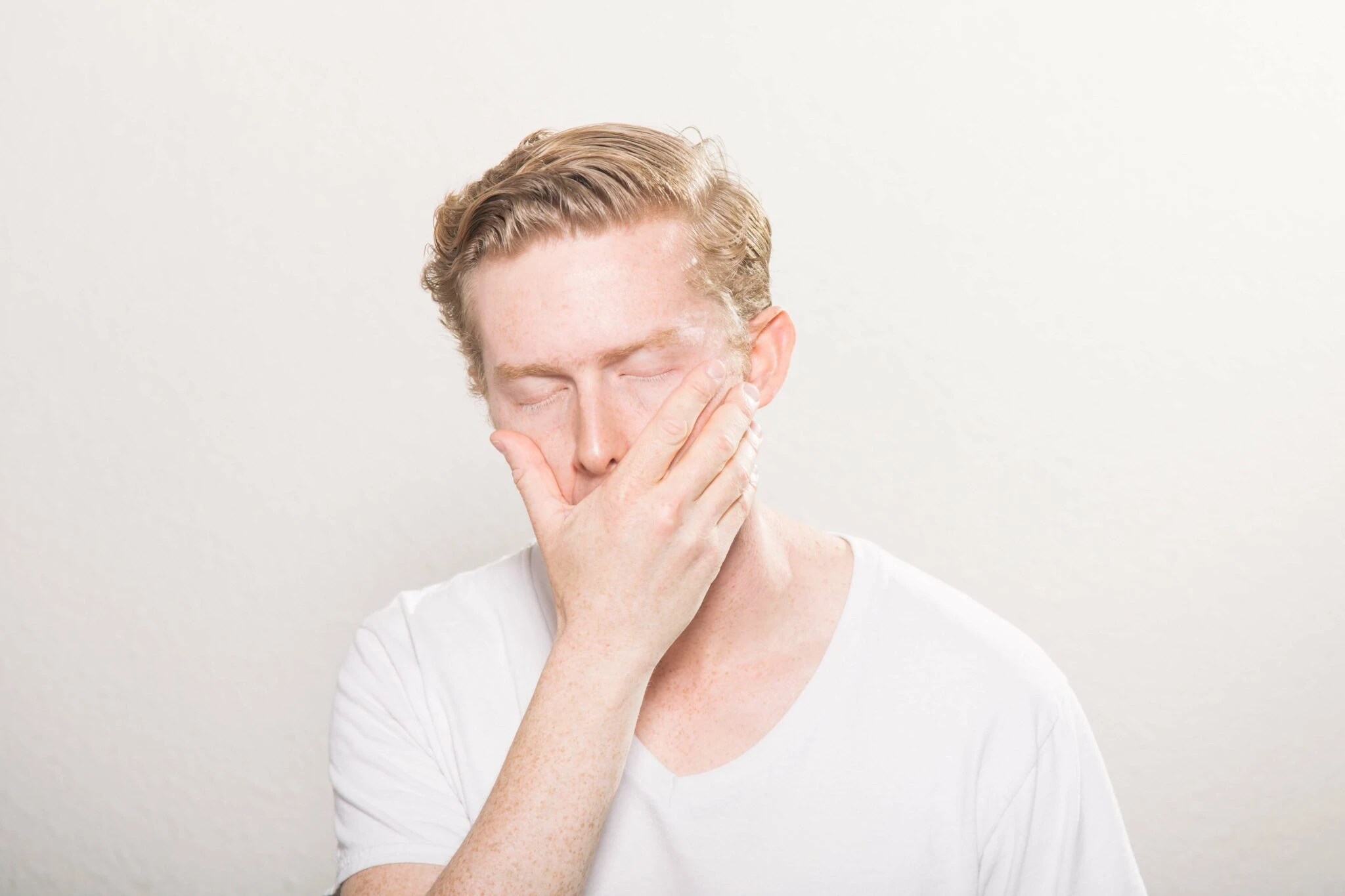😬 Jaw Popping? Here’s What You Should Know
| 🔊 | Jaw popping = early TMJ sign — Often your first clue something’s off with your joint alignment. |
| 🤕 | Common causes: clenching, grinding, gum chewing, or jaw/head trauma. |
| 🦴 | Medical links: arthritis, myofascial pain, sleep apnea, or infections. |
| ❄️🔥 | Quick relief: ice packs, warm compresses, OTC meds, and resting your jaw. |
| 🦷 | Dental fixes: splints, mouthguards, or adjusting bite alignment. |
| ⚠️ | Don’t wait! Early care = easier fixes. Call Supremia Dentistry ASAP. |
One of the most common reasons people see a dentist outside of preventative care is because they are wondering “why does my jaw keep popping?” This is an uncomfortable feeling that usually happens when you’re using your jaw in talking, chewing, and yawning motions. Jaw popping is often, but not always, due to problems with your TMJ, short for temporomandibular joint. When your joint isn’t aligned right with your jaw, every time it engages, you’ll hear and feel a little clicking sensation. Depending on how severe the problem is, the discomfort can evolve into moderate to severe pain. At Supremia Dentistry, we treat the symptoms of TMJ to help you get rid of the pain. But we also go further to the “root” and help you understand the problem and figure out the cause.
What is TMJ?
When your temporomandibular joint is dysfunctional, the first sign is usually a popping jaw you’re concerned about. Your TMJ joint plays a very important role in your body. It connects your lower jaw to the temporal bones in your skull. This connection is what lets you move your jaw sideways and forward and backward. Because of its essential role, it’s a complex joint. It has to be perfectly aligned in place in order for you to have the range of motion you need to chew, talk, yawn, and do all the other things you do with your mouth. The joint is connected by facial muscles that control the movements. There is also a small cartilage disc inside the socket of the joint to help absorb pressure and prevent your TMJ from being damaged. However, there are some things that get around that little soft cartilage disc and cause problems with your TMJ, anyway. If your jaw is popping when you’re chewing or talking, read on to learn more about TMJ.
TMJ Issues and the Culprit of Them
The early signs of TMJ problems include popping sounds and discomfort. When you start to notice them coming seemingly for no reason, you should pay attention to a few habits you might have. TMJ issues are one of the most common side effects of trauma to the jaw or side of the head. The jaw could be dislocated. If that’s the case, you’re likely experiencing moderate to severe pain and you know the reason for the problem is probably the trauma. But TMJ problems can happen “out of the blue,” too. In those cases, it’s more likely that a chronic habit you don’t even realize you have is slowly damaging the joint. Ongoing behaviors like clenching, grinding your teeth, and regular gum chewing all put pressure on the little disc that protects the joint. They also can cause your facial muscles to tighten up and become painful. Most people unconsciously start being more careful about how they move their jaw when TMJ signs start to appear. In a lot of these cases, the problem goes away by itself because the individual stops the problem behavior naturally. In other situations, however, the problem gets worse. This could mean there is an underlying health condition and medical attention is necessary.
Medical Reasons for TMJ
A visit to Supremia Dentistry can help you to determine if your TMJ symptoms are going to go away on their own, with a little help, or if they’re the start of something more serious. TMJ jaw popping is seen as a side effect frequently in health conditions such as:
- Rheumatoid and osteoarthritis, which can damage the cartilage of the TMJ and cause joint pain, stiffness, swelling, inflammation, and reduced range of motion.
- Myofascial pain syndrome, a chronic pain disorder that manifests as pain in the trigger points of certain muscles. This shows up as TMJ and can be narrowed down if you have jaw pain for longer than one week or pain that gets worse if you strain or stretch your neck.
- Sleep apnea, which can cause jaw pain because the jaw clenches down when you sleep to keep your airway from being obstructed. This hard clench causes pressure and stress on the jaw and neck.
- An infection in your salivary gland, characterized by TMJ popping, facial pain, dry mouth, a foul taste, and swelling. Any infection should be treated medically as soon as possible to prevent dangerous complications.
Your dentist will help you narrow down the reason for your TMJ and give you direction on how to treat it.
Ways to Treat TMJ & Popping Jaw
If your TMJ is bothering you and you can’t get to the dentist right away, you want to know how to stop your jaw from popping in the meanwhile. These remedies may not fix the problem, but they’ll reduce your pain while you wait. Easy home treatments include:
- Over-the-counter medications that reduce inflammation, like ibuprofen
- An ice pack to the painful area for 10 – 15 minutes to reduce inflammation, followed by a warm compress to the area for 5 minutes to help with the pain
- Rest and relaxation of the jaw and neck area
- Avoiding any activities that involve opening your mouth widely or repetitive motions like gum chewing or eating crunchy and chewy foods
If these temporary treatments don’t get rid of the pain, you may need medical help. Medical treatments can be as basic as a custom-made mouthguard or splint of you are grinding and clenching your teeth. Other medical treatments for ongoing TMJ symptoms may include prescription medications to relieve severe pain. Your dentist could recommend laser therapy or radio wave therapy to stimulate the muscles and reduce the pain in your jaw and neck. If the problem becomes too painful and these treatments have not helped, your dentist could suggest dental solutions that might be causing the pain. Underbites and overbites and missing teeth are the culprits behind a lot of TMJ issues and until the problem is corrected, the TMJ issues will keep occurring. In worst-case scenarios, surgery is a possibility, but there are many avenues to try before you get to that point.
Jaw Popping? Supremia Dentistry Can Help
Anytime you have problems with your jaw, mouth, or teeth, or find yourself questioning “
Why is My Jaw Popping and How Can I Fix it?

What is TMJ?
When your temporomandibular joint is dysfunctional, the first sign is usually the jaw popping you’re concerned about. Your TMJ joint plays a very important role in your body. It connects your lower jaw to the temporal bones in your skull. This connection is what lets you move your jaw sideways and forward and backward. Because of its essential role, it’s a complex joint. It has to be perfectly aligned in place in order for you to have the range of motion you need to chew, talk, yawn, and do all the other things you do with your mouth. The joint is connected by facial muscles that control the movements. There is also a small cartilage disc inside the socket of the joint to help absorb pressure and prevent your TMJ from being damaged. However, there are some things that get around that little soft cartilage disc and cause problems with your TMJ, anyway. If your jaw is popping when you’re chewing or talking, read on to learn more about TMJ.TMJ Issues and the Culprit of Them
The early signs of TMJ problems include popping sounds and discomfort. When you start to notice them coming seemingly for no reason, you should pay attention to a few habits you might have. TMJ issues are one of the most common side effects of trauma to the jaw or side of the head. The jaw could be dislocated. If that’s the case, you’re likely experiencing moderate to severe pain and you know the reason for the problem is probably the trauma. But TMJ problems can happen “out of the blue,” too. In those cases, it’s more likely that a chronic habit you don’t even realize you have is slowly damaging the joint. Ongoing behaviors like clenching, grinding your teeth, and regular gum chewing all put pressure on the little disc that protects the joint. They also can cause your facial muscles to tighten up and become painful. Most people unconsciously start being more careful about how they move their jaw when TMJ signs start to appear. In a lot of these cases, the problem goes away by itself because the individual stops the problem behavior naturally. In other situations, however, the problem gets worse. This could mean there is an underlying health condition and medical attention is necessary.Medical Reasons for TMJ
A visit to Supremia Dentistry can help you to determine if your TMJ symptoms are going to go away on their own, with a little help, or if they’re the start of something more serious. TMJ jaw popping is seen as a side effect frequently in health conditions such as:- Rheumatoid and osteoarthritis, which can damage the cartilage of the TMJ and cause joint pain, stiffness, swelling, inflammation, and reduced range of motion.
- Myofascial pain syndrome, a chronic pain disorder that manifests as pain in the trigger points of certain muscles. This shows up as TMJ and can be narrowed down if you have jaw pain for longer than one week or pain that gets worse if you strain or stretch your neck.
- Sleep apnea, which can cause jaw pain because the jaw clenches down when you sleep to keep your airway from being obstructed. This hard clench causes pressure and stress on the jaw and neck.
- An infection in your salivary gland, characterized by TMJ popping, facial pain, dry mouth, a foul taste, and swelling. Any infection should be treated medically as soon as possible to prevent dangerous complications.
Ways to Treat TMJ
If your TMJ is bothering you and you can’t get to the dentist right away, you want to know how to stop your jaw from popping in the meanwhile. These remedies may not fix the problem, but they’ll reduce your pain while you wait. Easy home treatments include:- Over-the-counter medications that reduce inflammation, like ibuprofen
- An ice pack to the painful area for 10 – 15 minutes to reduce inflammation, followed by a warm compress to the area for 5 minutes to help with the pain
- Rest and relaxation of the jaw and neck area
- Avoiding any activities that involve opening your mouth widely or repetitive motions like gum chewing or eating crunchy and chewy foods
Jaw Popping? Supremia Dentistry Can Help
Anytime you have problems with your jaw, mouth, or teeth, or find yourself questioning “why does my jaw keep popping?”, you should let your dentist know. They could be signs of an underlying problem. If they are caught early, they can be fixed easily. It’s when you put the symptoms off for too long that they become painful, expensive fixes. From preventative care and regular check-ups to TMJ treatment, Supremia Dentistry is here to help you with all your dental needs. Contact us today to schedule your appointment.
